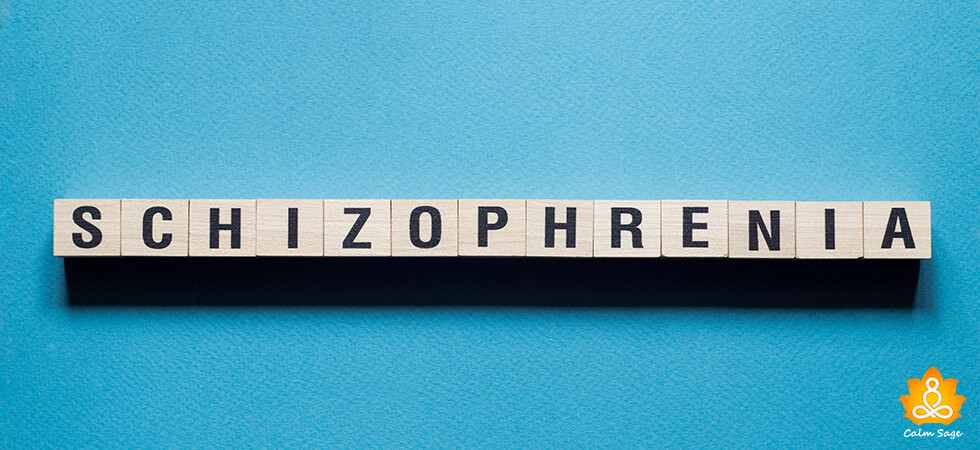Paradoxical Laughter: The Causes Behind Hysterical Laughter (With Tips to Cope)

“Laughter is the sun that drives winter from the human face.” — Victor Hugo
A universal language, laughter is what brings people together, makes you feel light-hearted, and uplifts the mood. Someone has rightly said, laughter is the best medicine, so why not use it as such, right? But what we don’t know is that laughter can be far from humorous in some situations. When you find yourself laughing at the most inopportune of times, then that laugh can be dubbed paradoxical laughter.
While laughing can put us at ease and help us let go of stress, in some circumstances, it can confuse others. This peculiar phenomenon has been an intrigue for psychologists for years. So, if you find yourself laughing at the weirdest of times without any context to the current situation, then your inopportune laughter can be a symptom of a neurological disorder.
If this is something that you can relate to, then read on to learn what is paradoxical laughter, why this phenomenon happens, and how you can cope with hysterical laughter.
What is Paradoxical Laughter?
Paradoxical laughter can also be known as inappropriate humor or laughter. This is a phenomenon that can occur when you laugh at situations that are out of context and in any other case would not warrant a laugh. One of the common examples of paradoxical laughter can be; when you laugh in a serious situation such as a funeral, the scene of an accident, or when you receive bad news.
More often than not, paradoxical laughter is uncontrollable and unprompted, and can occur despite you feeling sadness, anxiety, or grief.
Paradoxical laughter can also be called pathological laughter, inappropriate laughter, or pseudobulbar affect (PBA).
The Causes and Triggers of Paradoxical Laughter
Paradoxical laughter can be triggered by various factors such as schizophrenia, psychological disorders, social factors, and other neurological disorders. Let’s understand the causes of paradoxical laughter;
1. Schizophrenia:
A mental health condition where you experience hallucinations, delusions, and distorted thinking, schizophrenia is said to be one of the primary causes of paradoxical laughter. People with schizophrenia may experience hallucinations which can trigger uncontrollable laughter.
2. Neurological Trauma or Disorders:
In other studies, it has been found that paradoxical laughter can be triggered by disruptions in the brain, especially in the prefrontal cortex. The area of the brain that is responsible for emotional regulation, the prefrontal cortex is also said to be responsible for controlling our laugh response. When this area is affected, it can cause one to break out in uncontrollable laughter.
3. Psychological Disorders:
In some cases, paradoxical laughter or hysterical laughter can be a coping mechanism that allows one to emotionally disengage from triggering or overwhelming situations. It can also act as a defense mechanism where you can learn to disconnect from stressful situations by laughing. In some psychological cases, paradoxical laughter can be a result of discomfort, social awkwardness, or anxiety.
4. Social Factors:
Even social settings can be considered one of the causes of paradoxical laughter. When you’re in an uncomfortable or awkward situation, then you may find yourself laughing hysterically to dispel the awkwardness. In some cases, you may laugh to spread contagious laughter as a form of social bonding. It can also be dubbed as nervous laughter.
The Impact of Paradoxical Laughter on Mental Health
Paradoxical laughter can be one of the common symptoms of mental health conditions such as schizophrenia or pseudobulbar affect (PBA). Knowing how this type of laughter can affect our mental well-being can help treat and manage it effectively.
Here are some areas of mental well-being that can be affected by paradoxical laughter;
1. Emotional Regulation:
Paradoxical laughter often occurs as a result of emotional dysregulation. You may find yourself laughing uncontrollably or hysterically in distressing situations even when you’re experiencing sadness or anxiety at the moment. This inability to regulate emotions can be distressing for you and can make you feel confused, guilty, and lose control.
2. Mental Distress:
Paradoxical laughter can be a symptom of schizophrenia, bipolar disorder, and PBA. When you struggle with paradoxical laughter, it can make you feel isolated, misunderstood, and stigmatized which can then lead to mental distress and psychological unrest.
3. Social Implications:
When you have a condition that causes you to break out in uncontrollable and inappropriate laughter, then it can affect your relationships with your loved ones as well. Some people may not understand how this phenomenon affects you and may cause you to feel judged, rejected, and ridiculed. In the end, it can lead to social rejection, shame, and withdrawal from social interactions.
4. Miscommunication:
When you can’t explain the cause of your laughter in out-of-context situations, then it can create miscommunication and misunderstandings. You may unintentionally give the impression that you can’t take things seriously or are being disrespectful. This miscommunication can add a strain to your relationships and create an additional emotional burden on your shoulders.
Tips to Cope With Paradoxical Laughter
Here are some tips that can help you cope with paradoxical laughter
1. Develop Self-Awareness
You can start by developing self-awareness. Learn to recognize the pattern when paradoxical laughter occurs and pay attention to the triggers. Once you know what thoughts, emotions, or sensations are associated with laughter, you can take the right step in treating the triggers or eliminating them.
2. Practice Grounding Techniques
Next, you can practice grounding techniques or deep breathing techniques to regulate your emotions and promote calmness. Try to focus on the present by using sensory stimulation such as touching an object in your sight or listening to music. These techniques can help you stay in the present moment and redirect your attention from paradoxical laughter.
3. Seek Social Support
You may not realize this but social support can play a significant role in helping you cope with paradoxical laughter. Reach out to a friend or a family member who supports and understands your predicament. Sharing your distress with someone empathetic and non-judgmental can help you cope easily.
4. Educate Yourself
Try to learn more about paradoxical laughter and what causes it. When you educate yourself, you can reduce the confusion and self-blame that comes with paradoxical laughter. You can reach out to a professional who can help you learn more about this condition and what triggers it.
5. Seek Therapy
A professional can also help you work on emotional regulation that can be associated with paradoxical laughter. An approach like cognitive-behavioral therapy can help you identify the pattern of the laugh and what can be done to change the unhelpful thoughts. You can also learn healthy coping mechanisms in therapy.
6. Manage Your Stress Levels
Try to engage in stress management exercises such as physical exercise, mindfulness, meditation, or hobbies to increase the feelings of relaxation and boost emotional health. Engaging in exercises that make you happy and reduce stress can help you reduce the effects of paradoxical laughter and cope with it as well.
7. Join Support Groups
You can also choose to connect with others who experience the same condition. Joining a support group can offer you validation and understanding, and can make you feel less alone. You can share your stories, learn new coping skills, and find a common ground that can be comforting in the face of paradoxical laughter.
Getting Help…
When paradoxical laughter becomes too confusing and when you can’t figure out why you’re laughing at inappropriate situations, then you may need to consult a professional. A professional can help you identify the causes, underlying conditions, or other triggers that may contribute to paradoxical laughter and can also provide effective strategies to reduce the frequency of paradoxical laughter.
Wrap-Up
One of the most fascinating and enigmatic aspects of our behavior, paradoxical laughter is a phenomenon that may seem, at times, confusing and contradictory. Learning the causes and triggers of paradoxical laughter can help. Known as inappropriate laughter or pathological laughter, paradoxical laughter can cause distress and can make you feel scared.
With the right intervention and help, you can learn to manage and cope with paradoxical laughter. Talking to a professional can help!
Coping with paradoxical laughter is unique to each person but you need to remain compassionate and patient with yourself. Try to find what strategy works best for you and stick to them. You can experiment with different techniques to find the one that works best for you. It’s your choice in the end!
Found this article interesting? Want to learn more? Write to us at info@calmsage.com or share your thoughts in the comments below.




















